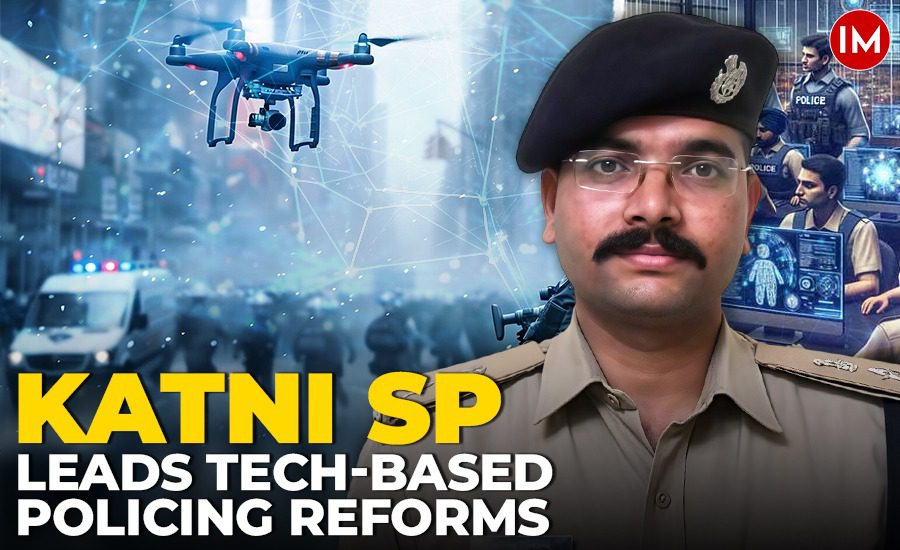In the heart of Madhya Pradesh, Katni district is witnessing a quiet but impactful shift in policing under the leadership of IPS Abhinay Vishwakarma, a 2019 batch officer. Currently serving as Superintendent of Police, Vishwakarma has made it his mission to ensure citizen safety, accountability, and transparency through innovative and technology-driven measures.
“I am simply trying to do things that are good, and hopefully they will be successful,” he says with characteristic humility, even as his initiatives begin to reshape the district’s policing system.
THE JAN SUNWAI TRANSFORMATION
One of the first reforms Vishwakarma introduced was in the public grievance redressal system, Jan Sunwai. Traditionally, grievance mechanisms in police stations have been plagued with delays and lack of follow-ups. Determined to change this, he launched a feedback-based approach that directly connects citizens with accountability.
He along with his team introduced feedback registers in all police stations and also provided QR codes so that any visitor can scan and submit their grievance.
The QR codes lead to a digital form where citizens can share their experience, whether they were treated respectfully, how long their case took, if any action was initiated, and whether there were demands for money. This simple yet impactful step has opened the doors for honest citizen feedback, making police stations more answerable to the very people they serve.
RANKING POLICE STATIONS
What sets this initiative apart is not just the feedback system, but the assessment mechanism built on it. Every month, the district administration compiles responses and prepares a ranking of police stations based on public interaction, service quality, and grievance handling.
This helps them understand which stations are performing best in terms of public interaction and service. The aim is to build public accountability and to improve both grievance redressal and police behavior.
By creating a sense of healthy competition among police stations, the ranking system motivates officers to improve their performance while giving citizens a clear picture of the service quality they can expect.
TACKLING CYBERCRIME WITH DEDICATED TEAMS
While improving physical policing, Vishwakarma has also kept a strong focus on the digital front. Katni, like many districts, has seen a rise in online scams, financial frauds, and other forms of cybercrime. To address this, a specialized team has been formed that works exclusively on prevention, monitoring, and enforcement in the cyber domain.
This unit is not only reactive but also proactive, creating awareness campaigns, guiding citizens about safe digital practices, and ensuring quick response to cyber frauds.
INTEGRATING POLICING SYSTEMS FOR EFFICIENCY
In addition to these initiatives, the district has embarked on a pilot project integrating advanced policing systems like ICJS (Interoperable Criminal Justice System) and CCTNS (Crime and Criminal Tracking Network System). These systems aim to link data across departments, making it easier for police to track cases, identify patterns, and coordinate better with other law enforcement bodies.
Such integration not only improves efficiency but also reduces scope for errors and delays in investigation processes.
BUILDING TRUST THROUGH ACTION
For Vishwakarma, policing is not just about enforcement but about restoring people’s faith in institutions. His reforms show a clear emphasis on making the police more approachable, transparent, and citizen-friendly.
With these initiatives, he is making policing not only technologically advanced but also deeply accountable to the people.
THE ROAD AHEAD
IPS Abhinay Vishwakarma’s leadership reflects a model where technology, community involvement, and accountability go hand in hand. Katni’s policing landscape is evolving, with QR codes on police station walls, citizens ranking their experiences, and cyber teams working round-the-clock, the district is setting an example for others to follow.
By bridging the gap between people and the police, Vishwakarma is not just strengthening law enforcement but also redefining public trust in governance.
































